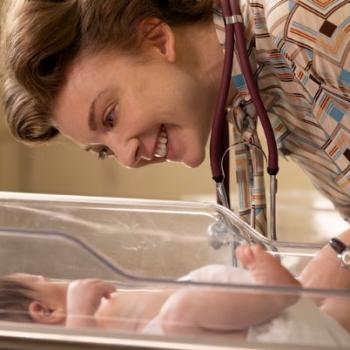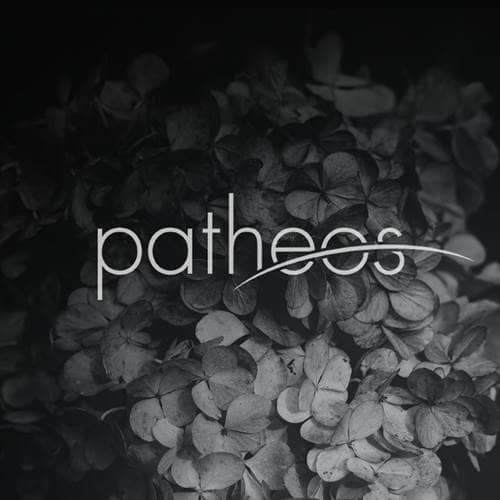By Greg Garrett
 Last week, colleagues of mine at Baylor University made the front page of USA Today because of their new book America's Four Gods. I've been using their survey data for the last couple of years, and cited it in my forthcoming book The Other Jesus because I think it explains a lot about who we are as a politically, religiously, and culturally divided nation. Although the vast majority of Americans tell pollsters that they believe in "God," my colleagues asked their questions in such a way that they revealed that Americans mean at least four vastly different things when they make this assertion. In one person's story of God, for example, the Supreme Being may be angry and constantly ready to punish; in another, God may be a Cosmic Force behind the scenes, something like the God of the Deists. But whatever people imagine about God, these controlling narratives have an impact on how their holders act in the world.
Last week, colleagues of mine at Baylor University made the front page of USA Today because of their new book America's Four Gods. I've been using their survey data for the last couple of years, and cited it in my forthcoming book The Other Jesus because I think it explains a lot about who we are as a politically, religiously, and culturally divided nation. Although the vast majority of Americans tell pollsters that they believe in "God," my colleagues asked their questions in such a way that they revealed that Americans mean at least four vastly different things when they make this assertion. In one person's story of God, for example, the Supreme Being may be angry and constantly ready to punish; in another, God may be a Cosmic Force behind the scenes, something like the God of the Deists. But whatever people imagine about God, these controlling narratives have an impact on how their holders act in the world.
Philosopher Alasdair MacIntyre has asked a central question about human life: How can I know what I am supposed to do until I know of what story I am a part? Narrative does indeed make sense of the world and shape our actions. If I understand that I am in a story in which God is angry and ready to let the world know it, then I am going to act personally in such a way as to try and divert that wrath, and I'm going to do all I can to get my community and my nation to do the same. The behavior of the Phelps clan and their Kansas church at military funerals literally does not make sense if you do not understand the story in which they are a part.
As a Christian who claims another narrative, a story of God's faithful presence in times of sorrow rather than a story of God having caused my sorrow for my faithlessness, I have theological as well as political and philosophical problems with the Phelps and those like them. But if you believe in a wrathful God, and you believe that, as the Westboro Baptist Church protest signs say, "God hates fags!" then you will most certainly believe that dead American soldiers are a sign of God's anger at our nation, and might even show up at the funerals of dead American soldiers to say so. That this particular narrative is, in my judgment, both harmful and mistaken does not make it any less real; in slightly less extreme versions, this story of God dominates a vast portion of the public square. Glenn Beck and Sarah Palin are energized by this story of God and by the consequences they fear. The Bush White House made national policy based on this story of God, and by their understanding of America's place within that narrative.
Whether we like it or not, religion and politics, theology and action are inextricably linked. Our disagreements about such things have led us to the impasse where our political processes are log-jammed, our elections are -- as Paul Krugman opined last week in the New York Times -- often about short-sighted and short-lived victories that could lead our nation to long-term disaster, and the polity of our churches is as broken as that of our governments. And yet, though religion seems to some to offer nothing but problems, I believe that the Christian values of compassion, humility, love, and sacrifice could be a real part of the solution.
This is the first of a series of columns I anticipate writing for Patheos as we go into an off-election year and into a general election cycle, and this weekly column comes at a time when in my own writing and thinking I am considering the question about what it means to be a faithful citizen. I have written a blog, novels, spiritual autobiography, and a number of books on the philosophical and theological meanings of literature and culture in which political issues have shown their faces, but I seem now to be moving in a new direction where those issues will be prominent if not dominant. The Other Jesus will take on 21st-century American faith and culture directly; I am in the middle of a book about the religious and ethical dimensions of our War on Terror; and I am in the early stages of planning a book and a national preaching conference on the importance of reconciliation in our national and church lives. Because of these projects, I expect that I'll be working out many of my ideas in early form here. I also expect to be responding to news like the release of my colleagues' book and the Supreme Court's consideration of the Phelps free-speech case, as well as the issues of the day. This column will try to be serious about both politics and theology, and will try to faithfully consider opposing points of view and what the Christian tradition has to tell us about them.





